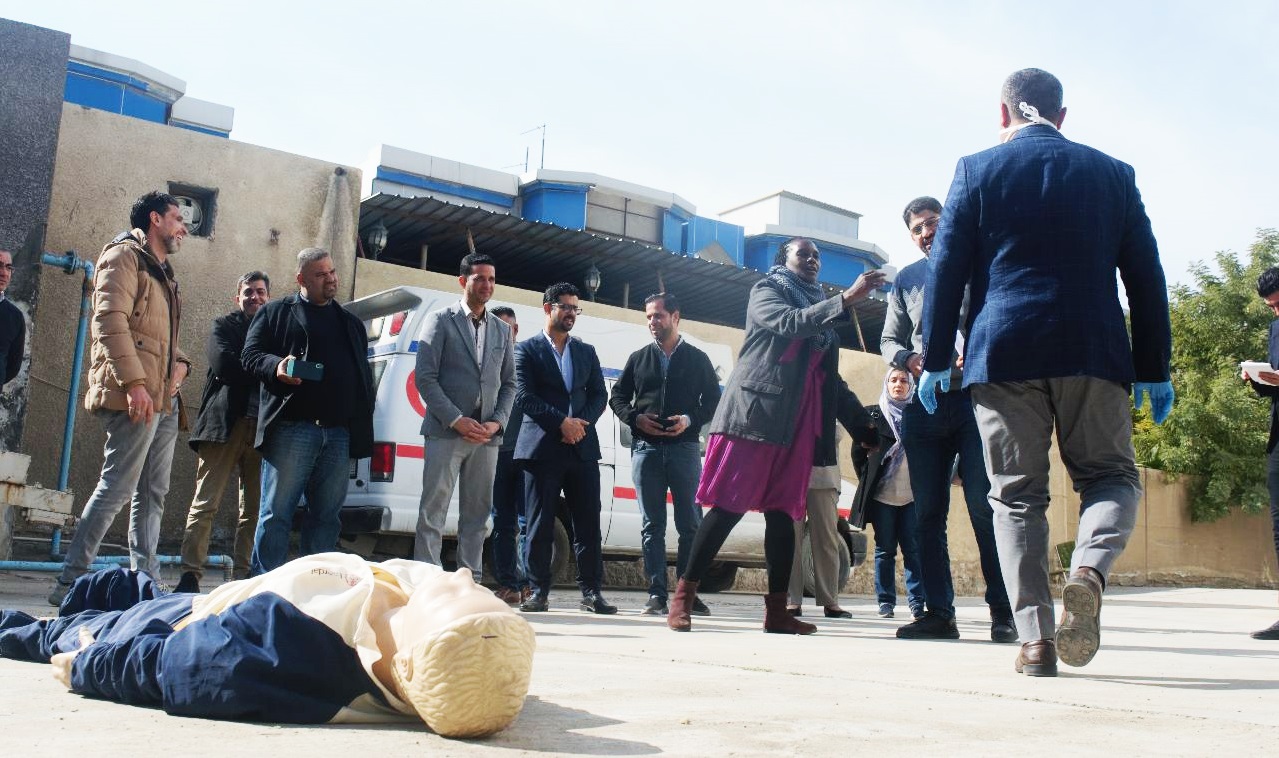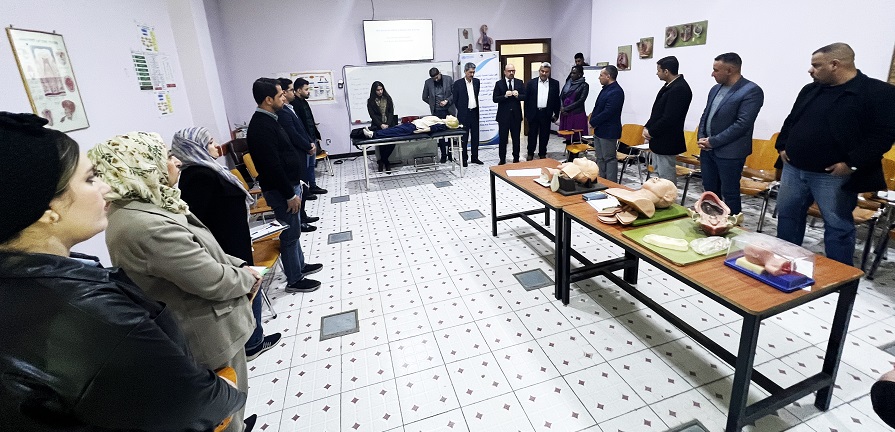 The programme targeted emergency medical doctors, nurses and paramedics from various Iraqi governorates
The programme targeted emergency medical doctors, nurses and paramedics from various Iraqi governorates
13 March 2023, Baghdad, Iraq — The World Health Organization (WHO) and Ministry of Health continue to scale up community first aid responders training of trainers programme to equip trainers with the necessary skills and knowledge to cascade training to community first responders across Iraq.
The programme, which started last month, aimed at strengthening the capacity of the health system in Iraq to respond to emergencies and provide immediate life-saving interventions to communities in need. The programme targeted emergency medical doctors, nurses and paramedics from various governorates.
"A few minutes may sometimes be the difference between life and death depending on the care received following an incident during the transport or at the reception of the hospitals. This programme focuses on increasing the chances of survival throughout the different phases after the incidents," said Dr Ahmed Zouiten, WHO Representative in Iraq.
The hands-on programme was held in accordance with WHO guidelines and was conducted by experienced trainers from the Ministry of Health and WHO, allowing participants to gain practical skills and knowledge in emergency response.
The successful completion of the 10-day community first aid responders' programme is a significant step in building the capacity of the health system in Iraq to respond to emergencies and provide life-saving interventions to communities in need.
Following the emergency care system assessment conducted in Iraq in April 2022, the need for supporting pre-hospital care was highlighted among the top priorities requiring urgent support. Most premature deaths occur at the prehospital level and are preventable if appropriate care is provided on time.
Community members are often the first to witness and respond to medical emergencies, making them an essential first link to emergency care systems. Therefore, WHO developed the programme that equips community members with the knowledge and skills to provide life-saving care, connect patients with the formal health care system and improve outcomes for acutely ill and injured patients.
 The programme aimed at strengthening the capacity of the health system in Iraq to respond to emergencies and provide immediate life-saving interventions to communities
The programme aimed at strengthening the capacity of the health system in Iraq to respond to emergencies and provide immediate life-saving interventions to communities




